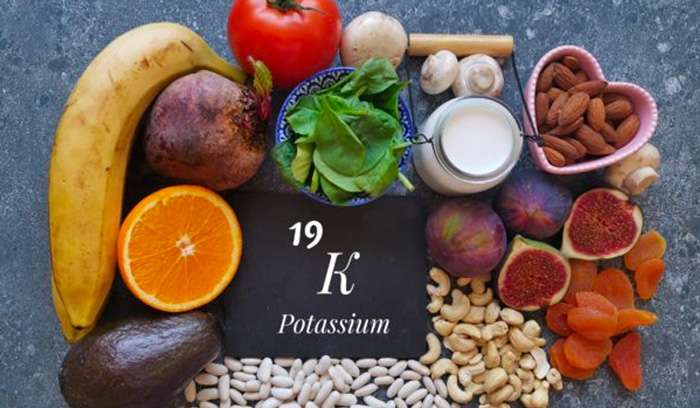Low potassium levels can indicate various health issues, including cancer. Understanding the connection between low potassium and cancer is crucial for early detection and treatment.
In this post, we delve into how low potassium levels may serve as an indicator of underlying cancerous conditions. Stay informed about the potential implications of low potassium and its correlation with cancer to prioritize your health effectively.
Quick Summary
Low potassium levels may hint at specific cancers, particularly gastrointestinal ones like colon cancer. Nonetheless, it’s imperative to seek a healthcare provider’s advice for accurate assessment and diagnosis.
Understanding Potassium
Role in Body
Potassium plays a crucial role in the body, regulating muscle contractions and nerve signals. It also helps to maintain fluid balance in cells and supports proper heart function.
Causes Low Levels
Low potassium levels can be caused by various factors, including excessive vomiting or diarrhea, which lead to the loss of this essential mineral. Certain medications, like diuretics, can contribute to potassium deficiency. Furthermore, inadequate dietary intake of potassium-rich foods can also result in low levels.
Symptoms Hypokalemia
When experiencing low levels of potassium, individuals may exhibit symptoms such as muscle weakness or cramps, indicating an imbalance in the body. Other common signs include fatigue and weakness, which can significantly impact daily activities. Moreover, an irregular heartbeat may occur due to insufficient potassium levels.
Cancer Connection
General Link
Low potassium levels may indicate underlying health issues. Regular monitoring of potassium levels is crucial for early detection of potential problems. Consult a healthcare provider for proper evaluation and guidance.
Types Associated
-
Colon cancer, kidney cancer, and lung cancer are commonly linked to low potassium levels.
-
Gastrointestinal cancers like stomach and pancreatic cancer can also impact potassium balance.
-
Blood-related cancers such as leukemia may contribute to fluctuations in potassium levels.
Mechanisms
Cancer cells have the potential to disrupt the body’s potassium regulation system. Chemotherapy, a common cancer treatment, can lead to potassium imbalance due to its effects on healthy cells. Tumor growth within the body may directly impact potassium levels, leading to deficiencies or excess.
Low Potassium and Cancer Signs
Common Indicators
Low potassium levels can sometimes be indicative of underlying health issues, including persistent low energy levels. This can lead to feeling constantly fatigued, despite adequate rest. unexplained weight loss is another potential sign that warrants attention. Sudden weight loss without changes in diet or exercise habits should be monitored closely. Furthermore, digestive issues like constipation can also be linked to low potassium levels. Constipation that persists over time could signal an imbalance in essential minerals like potassium.
Specific Cancers
Colon Cancer
-
Low potassium levels may be linked to colon cancer, highlighting the importance of regular screenings and monitoring for individuals with this condition.
-
Treatment for colon cancer, such as surgery or chemotherapy, can impact potassium levels in the body.
-
Therefore, consistent monitoring of potassium levels is crucial for patients undergoing treatment for colon cancer.
Other Cancers
-
Various types of cancers can contribute to low potassium levels due to the effects of the disease on the body.
-
Chemotherapy treatments for different cancers may disrupt the balance of potassium in the body, leading to deficiencies.
-
Understanding the specific type of cancer a person has is essential for healthcare providers to effectively manage and maintain optimal potassium levels during treatment.
Early Detection Significance
Cancer Management
Proper potassium management is crucial during cancer treatment. Healthcare providers create personalized care plans for patients. Addressing potassium levels can significantly improve treatment outcomes.
Potassium Levels Monitoring
Regular blood tests are essential to track potassium levels accurately. Adjusting the diet according to individual potassium needs is vital. Monitoring symptoms associated with potassium imbalance is crucial for overall well-being.
Managing Low Potassium
Dietary Changes
Increasing potassium intake through foods like bananas and sweet potatoes can help raise low potassium levels. Avoiding processed foods high in sodium is crucial as they can worsen the condition. Seeking advice from a nutritionist for tailored dietary guidance is recommended for optimal results.
Medication Options
Prescription of potassium supplements might be necessary to address low potassium levels effectively. Adjusting diuretics could also be essential in managing potassium levels within the body. It is vital to have thorough discussions with healthcare providers regarding the available medication options and their potential impacts on potassium levels.
Summary
Understanding the link between low potassium levels and cancer signs, particularly in colon cancer, is crucial for early detection. Testing for hypokalemia can offer valuable insights, as managing low potassium can play a significant role in your overall health. Remember, proactive measures and regular screenings can make a real difference in catching potential issues early.
Stay informed and listen to your body’s signals. If you notice persistent symptoms or have concerns about your potassium levels, consult with your healthcare provider promptly. Your health is paramount, so taking proactive steps can lead to better outcomes.
Frequently Asked Questions
Is low potassium a common symptom of cancer?
Low potassium can indicate certain cancers, especially gastrointestinal cancers like colon cancer. However, consulting with a healthcare provider for proper evaluation and diagnosis is essential.
How can I test for low potassium levels?
Testing for low potassium involves a simple blood test that measures the amount of potassium in your blood. This test, known as a serum potassium test, helps determine if your levels are within the normal range or if they are too low (hypokalemia).
What is the significance of early detection of low potassium levels?
Early detection of low potassium levels is crucial as it can help prevent potential complications such as muscle weakness, fatigue, and irregular heartbeats. Timely intervention through dietary changes or supplements can effectively manage low potassium levels.
Can managing low potassium levels reduce the risk of associated health issues?
Yes, managing low potassium levels through dietary modifications or prescribed supplements can help reduce the risk of complications such as muscle cramps, weakness, and abnormal heart rhythms. It is important to follow your healthcare provider’s recommendations for optimal management.
Are there specific signs related to colon cancer and low potassium levels?
Colon cancer may present symptoms like diarrhea, which can lead to electrolyte imbalances including low potassium levels. Monitoring these symptoms along with regular screenings can aid in early detection and appropriate management strategies.



